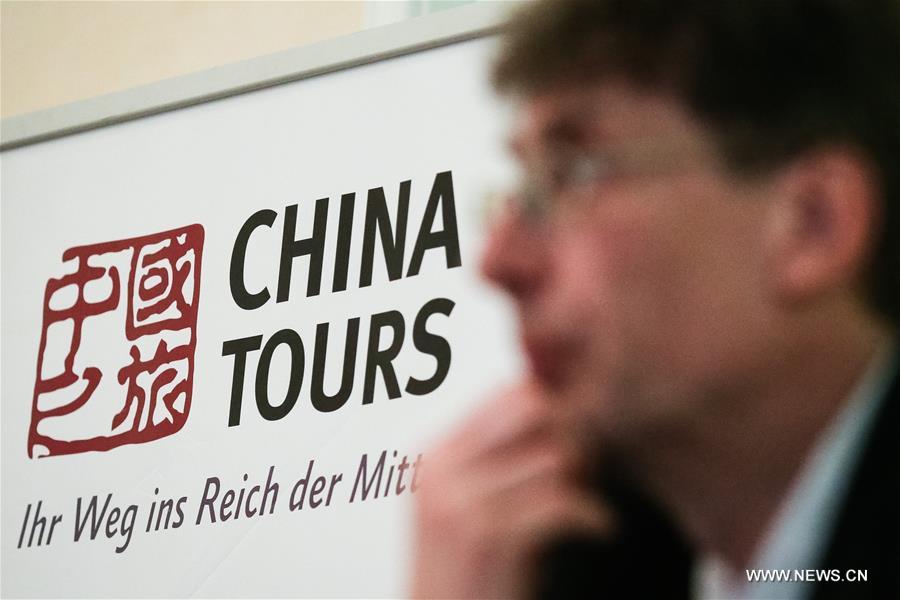Silk road tourism opens new window to know China
- Zhang Fan
 0 Comment(s)
0 Comment(s) Print
Print E-mail Xinhua, May 13, 2016
E-mail Xinhua, May 13, 2016
A tourist attends a reception as part of a bus trip along the ancient silk road towards China in Berlin, Germany, on May 12, 2016. The journey across the entire Euro-Asian continent lasts for nearly 2 months, and brings the tourists through Germany, Poland, Belarus, Russia, Kazakhstan, Uzbekistan and Kyrgyzstan. (Xinhua/Zhang Fan)
"I have been deeply interested in the silk road since I was a child, now I've finally got a chance to really experience it," Heinrich Schultz, a 77-year-old German retiree, told Xinhua on Thursday when he started a bus trip with some 50 other Germans along the ancient silk road towards China.
The journey across the entire Euro-Asian continent lasts for nearly two months, and brings the tourists through Germany, Poland, Belarus, Russia, Kazakhstan, Uzbekistan and Kyrgyzstan. The group will then enter China from the country's western border.
"It will be a very special, unforgettable experience to travel from the Atlantic to the Pacific," said Liu Guosheng, chief of China Tours which co-organized the trip, in Berlin.
According to him, nearly half of the 13,000-kilometer-long trip will be inside China. From Xinjiang at the western border to Shanghai at the eastern coast, tourists will visit over 20 Chinese cities.
"We have been running the route for 10 years. More and more people, not only from the German speaking countries, are joining us," Liu said.
Nearly 26 million foreigners traveled to China in 2015. Some 5 million among them were from Europe. Beijing, Xi'an, Shanghai and the Yangtze River are traditional Chinese travel destinations for European tourists.
"Compared with modern cities, western China is more attractive for me," said Schultz, "the culture, ethic minorities, their lives...all these are very interesting."
China National Tourism Administration (CNTA) regards "Silk Road Tourism" as a new brand to attract foreign visitors, setting it as the leading theme of tourism promotion in recent two years.
"It helps people to know more about China, especially the north-western part of the country," said Shi Xiang, head of CNTA office in Frankfurt.



